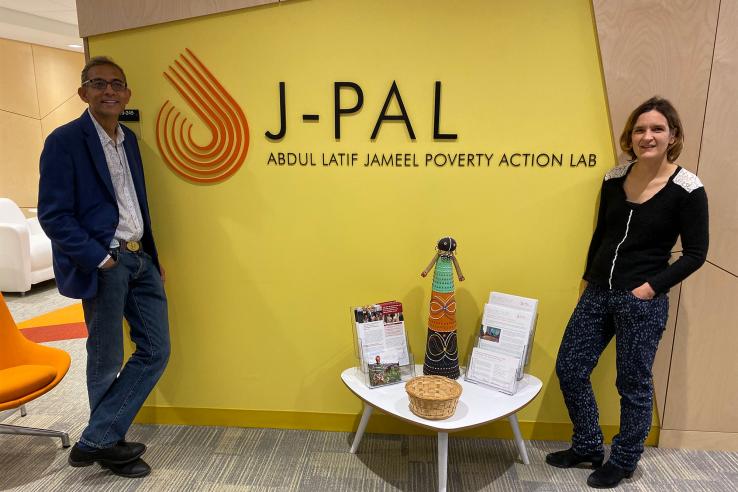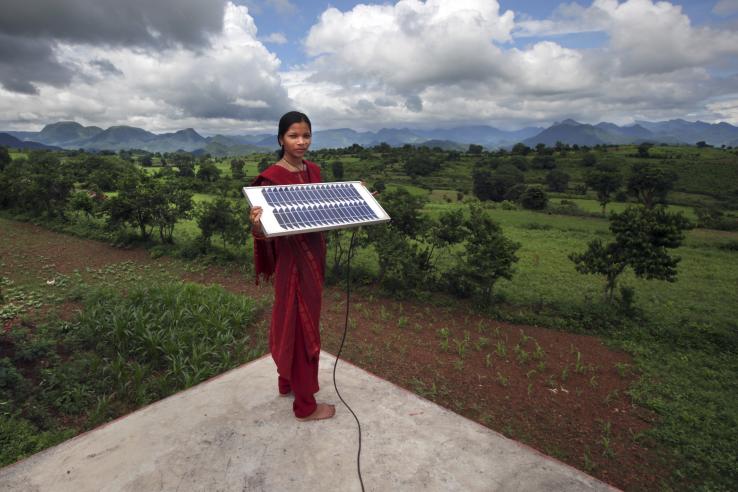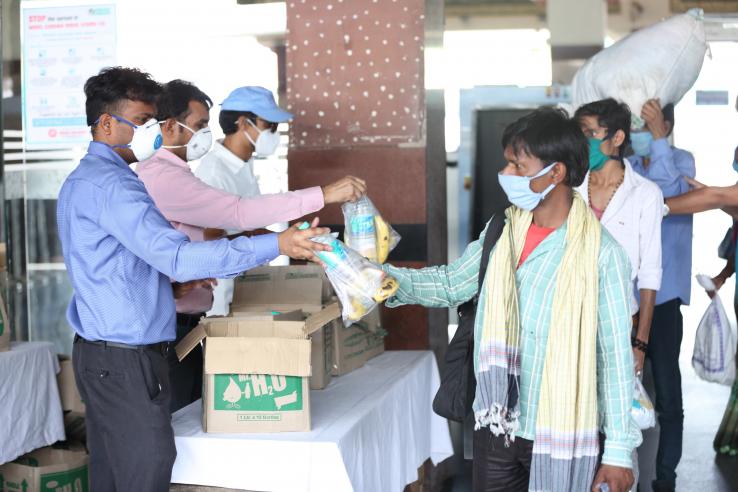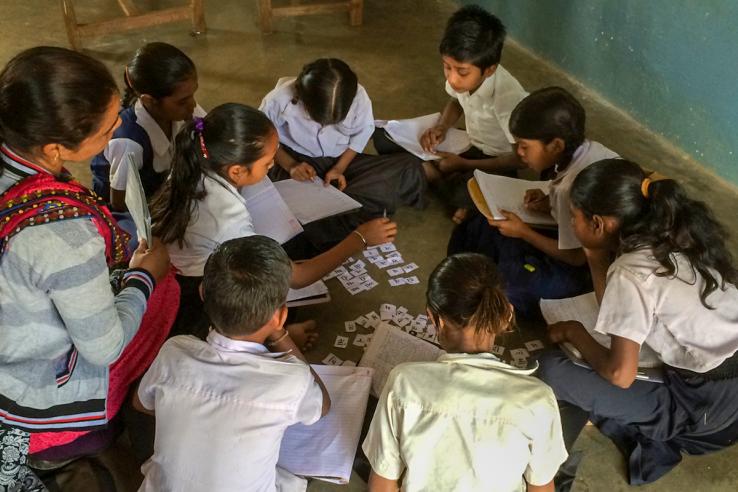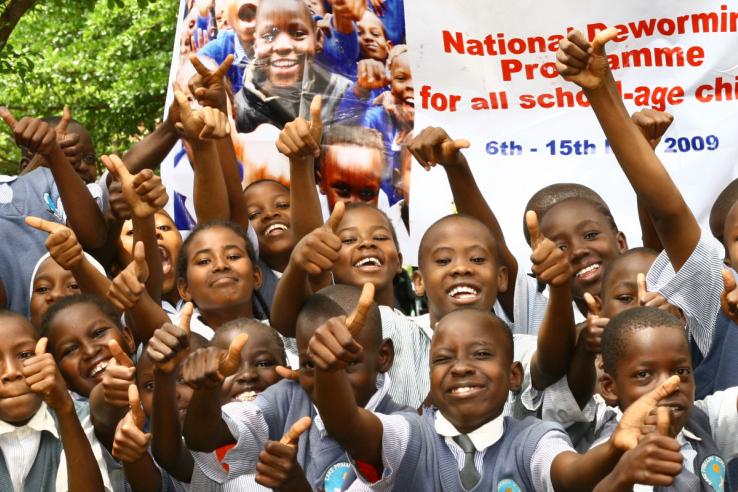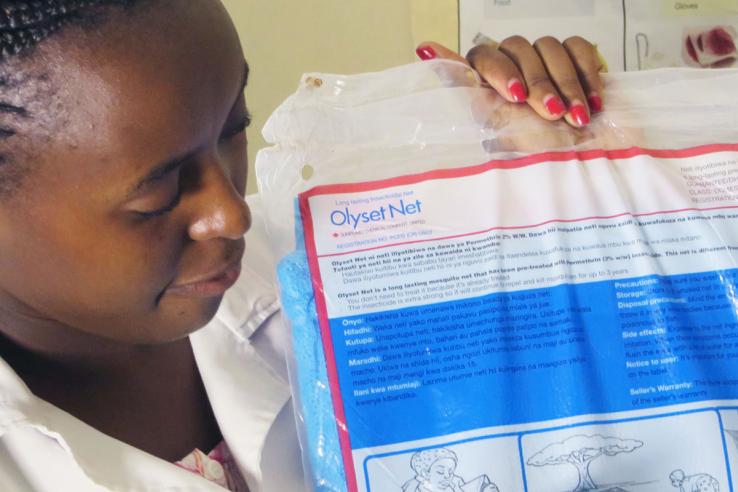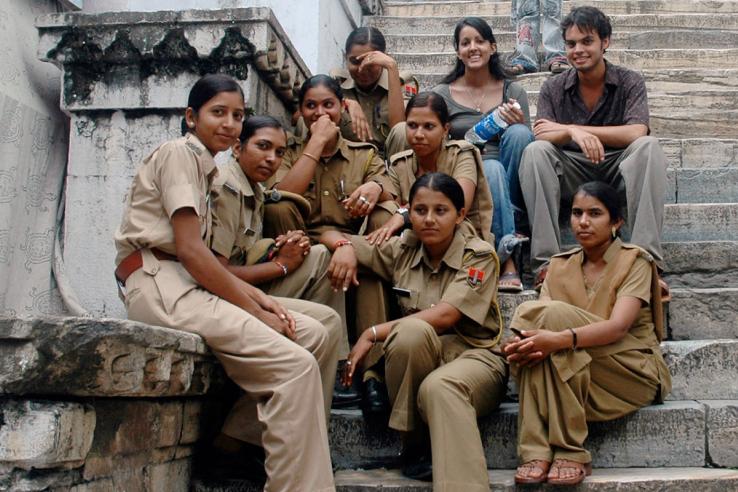Displaying 1636 - 1650 of 8339
Blog
This article was originally published in The Center for Effective Philanthropy. Abhijit Banerjee, Esther Duflo, and Michael Kremer recently won the 2019 Nobel Prize in Economics for their “experimental approach to alleviating global poverty.” But while attention has focused on their experimental...
Blog
Today, in partnership with King Philanthropies, we announced the launch of the five-year $25 million King Climate Action Initiative (K-CAI) at J-PAL. The initiative will support innovative research and policy engagement to combat climate change and poverty around the world.
Blog
We caught up with Nana Okozi, a former project officer at J-PAL Africa. Nana joined J-PAL Africa in 2015 and led training and data collection for many of its research projects. Now a project coordinator at the National Institute for Communicable Diseases (NICD), Nana is helping to coordinate...
Blog
As part of the June issue of J-PAL North America’s monthly newsletter, Yiping Li , a Policy Associate at J-PAL North America, shared her personal experience with Chicago’s summer youth employment program, One Summer Chicago.
Blog
In this inaugural post in the Alumni Voices series, Bhavya Srinivasan (former Senior Finance and Operations Manager, J-PAL South Asia ’14) discusses her work at Start Network to build a stronger humanitarian system for the COVID-19 response.
Event
CLEAR/J-PAL South Asia is offering an online training course on Evaluating Social Programs. Modeled after our in-person course, Executive Education: Evaluating Social Programs, this five-day virtual training program is designed to provide development practitioners, policymakers, researchers, and...
Initiative Resource
Initiative projects and documents
Person
Blog
Adrien Bouguen joined J-PAL Europe as a research assistant in 2009, where he played a central role in establishing our then-fledgling European office. Now an assistant professor of economics at Santa Clara University, his research focuses on the economics of education and child development.
Person
Person
Prajval Jhunjhunwala is a Research Manager at J-PAL South Asia, where he works on the Energy, Environment and Climate Change portfolio.
Evidence to Policy Case Study
Case study
Reorienting instruction has improved learning opportunities for over 60 million students in India and Africa.
Evidence to Policy Case Study
Case study
After research found that school-based distribution of deworming pills in areas with high infection rates boosted health and school attendance, the approach has been scaled to reach over 280 million children in 2019.
Evidence to Policy Case Study
Case study
Evidence from randomized evaluations played a role in shifting global opinion to support free distribution of key preventive health products.
Evidence to Policy Case Study
Case study
Training in soft skills for police in Rajasthan, India improved public perceptions of their performance.
